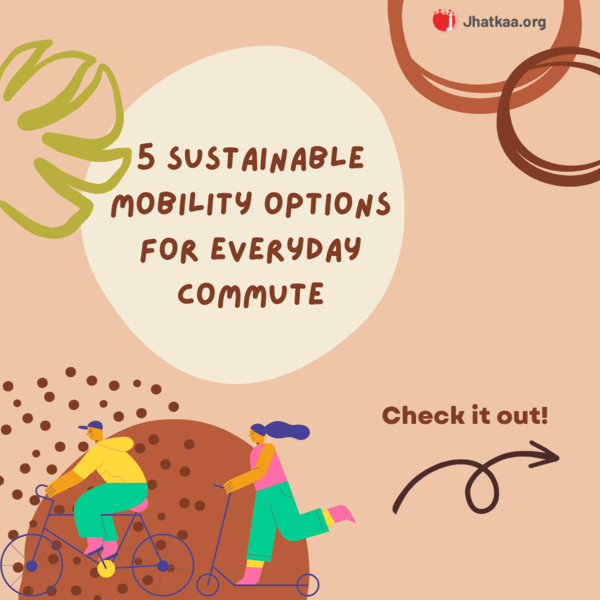Sustainable mobility refers to the ability of people to move around in a way that minimizes environmental impact, ensures social equity, and promotes economic development. Due to several environmental, social, and economic issues affecting communities all over the world, sustainable mobility has gained importance recently.
One of the primary reasons for the importance of sustainable mobility is that transportation contributes significantly to global greenhouse gas emissions. The prioritization of private vehicles is subsequently contributing to climate change and poor air quality.
HERE ARE THE COMMUTE OPTION:
- Electric vehicles: Shifting towards electric cars is a big step towards sustainable transportation. Since they produce fewer carbon emissions and are fueled by renewable energy sources, electric vehicles are environmentally friendly.
- Public transportation: Promotion of public transportation, including buses and trains, is another successful strategy for achieving sustainable mobility. Traffic congestion, air pollution, and carbon emissions can all be dramatically reduced by using public transportation. Government can make investments in public transportation networks to increase their effectiveness and accessibility to the general public.
- Active transportation: Encouraging walking and cycling as alternatives to driving can help with sustainable mobility. This form of transportation is economical, healthful, and environmentally friendly. Cities may make active transportation more accessible by investing in bicycle and pedestrian infrastructure, such as bike lanes and footpaths.
- Carpooling and ridesharing: Carpooling and ridesharing are excellent ways to reduce the number of vehicles on the road and promote sustainable mobility. By sharing a car with others, people can reduce their carbon footprint and save money on transportation costs. Governments can encourage carpooling and ridesharing by offering incentives to participants.
- Mobility-as-a-Service (MaaS): MaaS is a new concept that provides a variety of travel options through a single platform. This covers ridesharing, renting a car, and public transit. By lowering the number of cars on the road and boosting the use of public transportation, MaaS can advance sustainable living.
Sustainable mobility solutions can help reduce emissions and promote more environmentally friendly transportation practices. Furthermore, sustainable mobility can improve access to transportation for low-income communities, reduce traffic congestion, and promote economic development.
Overall, sustainable mobility is critical to achieving a more sustainable, equitable, and livable future for people and the planet.



